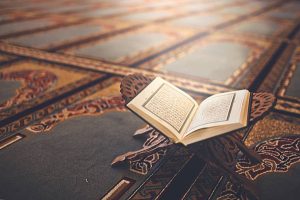
The deen of Islam has presented laws and injunctions, and sunnats and aadaab (etiquettes), to teach man how to conduct in all situations and all conditions.
Just as the deen of Islam has provided guidance to a person when he is residing in his hometown, similarly it has provided him with guidance as to how he should conduct when he is out on safar (travelling on a journey).
In other words, the deen of Islam is so complete, comprehensive and perfect that it has taken a person’s condition into consideration at all times and all situations and provided him with appropriate guidance.
Hence, we find that Shariah has given concession to a travelling person to perform two rakaats in place of the four rakaats salaah. Similarly, Shariah has given concession to a traveling person not to fast in Ramadhaan, and instead keep qadha of the missed fasts after the month of Ramadhaan.
It is well known that when one is travelling, then at times, he is forced to sacrifice his sleep and comfort in order to expedite the journey and reach his destination in time. Similarly, at times, he faces situations that are against his temperament and nature. He may be forced to sacrifice the food, drink and living standards to which he is accustomed in his hometown, in order to fulfil the purpose of his journey.
Thus, Hazrat Rasulullah (sallallahu ‘alaihi wasallam) advised that after one fulfils the purpose of his journey, he should return home. Rasulullah (sallallahu ‘alaihi wasallam) said, “Travelling is like a portion of Jahannum which prevents one from his food, drink and sleep (i.e. travelling presents difficulty, just as one experiences difficulty in Jahannum). Thus, when one completes his purpose and work of the journey, he should hasten back to his family.”[1]
In essence, the deen of Islam has provided many sunnats and aadaab which one should practise upon during the journey in order for him to acquire ease and comfort during the journey as well as be a source of mercy for others.
SUNNATS AND AADAAB OF SAFAR (TRAVELLING)
1. Before embarking on a journey (i.e. travelling to a place which is 78 km or more), one should perform two rakaats of salaah. This salaah is known as Salaatus Safar.
عن المطعم بن المقدام قال: قال رسول الله صلى الله عليه وسلم: ما خلف عبد على أهله أفضل من ركعتين يركعهما عندهم حين يريد سفرا (المصنف لابن أبي شيبة، الرقم: ٤٩١٤)[2]
Hazrat Mut’im bin Miqdaam (radhiyallahu ‘anhuma) reports that Hazrat Rasulullah (sallallahu ‘alaihi wasallam) said, “There is no action that a person can leave behind with his family before setting out on a journey which is more virtuous than the two rakaats (Salaatus Safar) which he performs by them.”
عن ابن عمر رضي الله عنهما أنه كان إذا أراد أن يخرج دخل المسجد فصلى (المصنف لابن أبي شيبة، الرقم: ١١٩١٥)[3]
It is reported that whenever Hazrat Ibnu Umar (radhiyallahu ‘anhuma) intended embarking on a journey, he would first proceed to the musjid and perform salaah.
2. Meet your family members and friends before setting out on a journey (e.g. when travelling for umrah or hajj) and ask them to make dua for you.
عن أبِي هريرة رضي اللَّهُ عنه قال: قال رسول اللهِ صَلَّى الله عَلَيه وسَلَّم إِذا أراد أحدكم سفرا فليسلم على إِخْوَانه فإِنهم يزيدونه بدعائهم إِلَى دعائه خيرا (المعجم الأوسط، الرقم: ٢٨٤٢)[4]
Hazrat Abu Hurairah (radhiyallahu ‘anhu) reports that Hazrat Rasulullah (sallallahu ‘alaihi wasallam) said, “When any of you intends travelling, then he should meet his Muslim brothers (i.e. family and friends and ask them to make dua for him). Indeed their dua added to his dua will be a means of him gaining goodness (during his travel).”
3. Inform your family members of your destination and place of residence during your journey so that it will be possible for them to contact you.
4. At the time of departure, recite the masnoon dua of safar:
بِسْمِ اللهِ اَلْحَمْدُ لِلّٰه سُبْحَانَ الَّذِيْ سَخَّرَ لَنَا هٰذَا وَمَا كُنَّا لَهُ مُقْرِنِيْنَ وَإِنَّا إِلٰى رَبِّنَا لَمُنْقَلِبُوْنَ اَلْحَمْدُ لِلّٰه اَلْحَمْدُ لِلّٰه اَلْحَمْدُ لِلّٰه اَللهُ أَكْبَرُ اَللهُ أَكْبَرُ اَللهُ أَكْبَرُ لَا إِلٰهَ إِلَّا اللهُ سُبْحَانَكَ اللّٰهُمَّ إِنِّيْ ظَلَمْتُ نَفْسِيْ فَاغْفِرْ لِيْ فَإِنَّهُ لَا يَغْفِرُ الذُّنُوْبَ إِلَّا أَنْتَ [5]
In the name of Allah Ta‘ala. All praise be to Allah Ta‘ala, Glory be to Allah Ta‘ala who has subjugated this animal (or placed this vehicle under our control) though we were unable to control it (without His help). Surely, to our Rabb are we to return. All praise be to Allah Ta‘ala. All praise be to Allah Ta‘ala. All praise be to Allah Ta‘ala. Allah Ta‘ala is the greatest. Allah Ta‘ala is the greatest. Allah Ta‘ala is the greatest. There is no deity worthy of worship besides Allah Ta‘ala. (O Allah Ta‘ala) You are most pure. O Allah Ta‘ala, indeed I have oppressed myself so forgive me, for there is none who forgives sins except You.
[1] صحيح البخاري، الرقم: ١٨٠٤
[2] قال الشيخ محمد عوامة في تعليقه على المصنف: هذا الحديث مرسل أو معضل وإسناده حسن … ومن شواهد حديث المطعم من حيث الجملة ما رواه الطبراني في الكبير، الرقم: ١٠٤٦٩ عن ابن مسعود رضي الله عنه أن رجلا استأذن النبي صلى الله عليه وسلم في تجارة إلى البحرين فقال له صل ركعتين وإسناده حسن
[3] وقال الشيخ محمد عوامة في تعليقه على المصنف: إسناد المصنف صحيح
[4] وقال البوصيري في إتحاف الخيرة، الرقم:٦٢٤١ : هذا إسناد ضعيف لضعف عمرو بن الحصين
[5] سنن أبي داود، الرقم: ٢٦٠٢، سنن الترمذي، الرقم: ٣٤٤٦ وقال: هذا حديث حسن صحيح
 Ihyaaud Deen An Effort to Revive Deen in Totality
Ihyaaud Deen An Effort to Revive Deen in Totality



